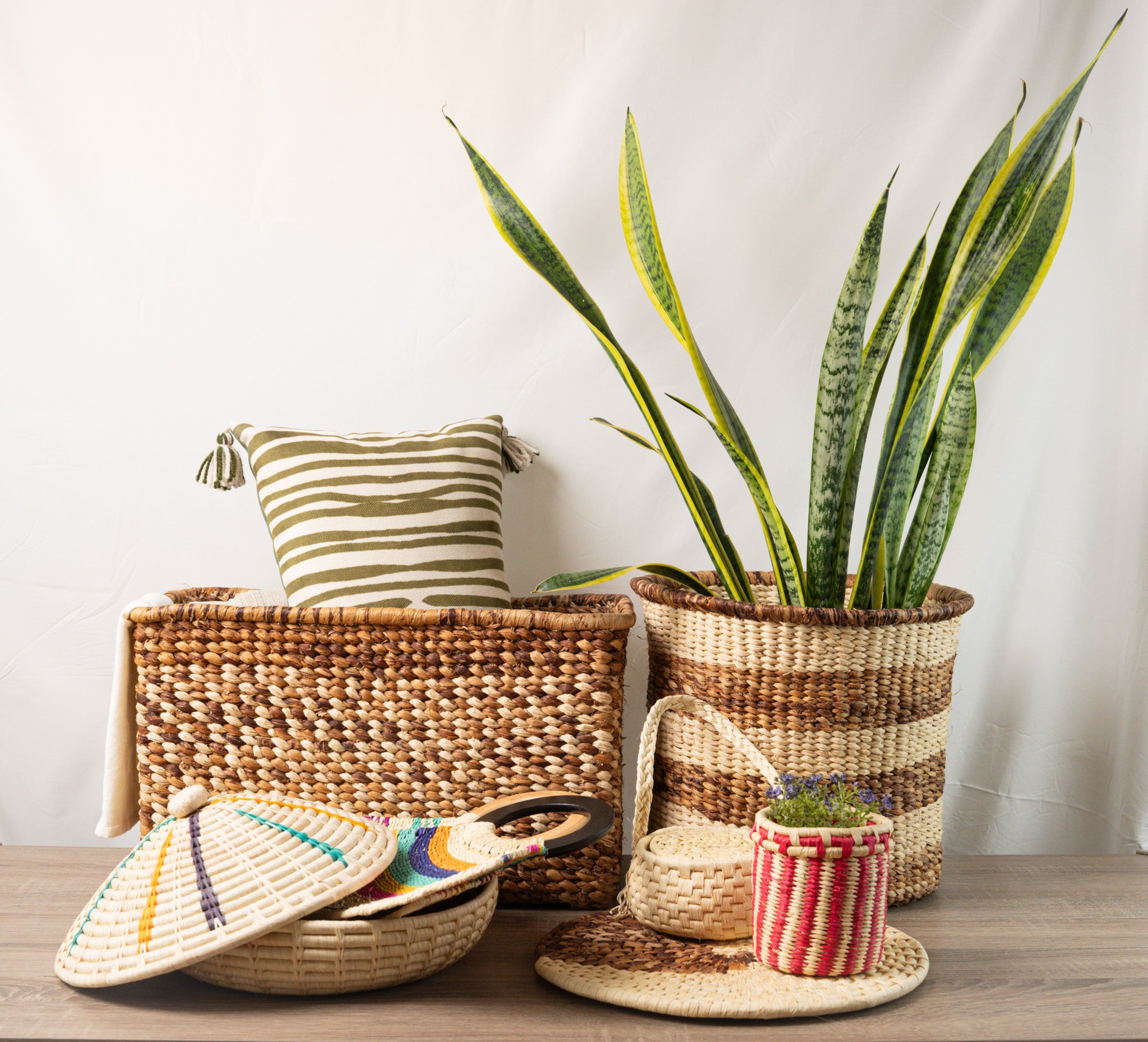-
 Sold out
Sold outAlpaca Harmony Blanket
Regular price 1.164,00 DKKRegular priceUnit price / per -
Andes Essence Blanket
Regular price 1.034,00 DKKRegular priceUnit price / per -
Azure Horizon Blanket
Regular price 1.100,00 DKKRegular priceUnit price / per -
Crimson Vine Scarf
Regular price 889,00 DKKRegular priceUnit price / per


About Tribu
Welcome to Tribu, where every product is a blend of love, high quality, and exceptional craftsmanship. Our handmade pieces, created by skilled Ecuadorian artisans, not only bring beauty and durability into your home but also support communities facing immense challenges. Each purchase helps preserve cultural traditions and provides much-needed support to families affected by instability. Join us in making a difference while celebrating the high-quality artistry of Ecuador.
FAQ
How are Tribu’s products sustainably made?
At Tribu, sustainability is at the heart of everything we do. Our products are crafted using natural, renewable materials like toquilla straw, which is sustainably harvested from the Carludovica palm. We work with artisans who use time-honored, eco-friendly techniques that have minimal impact on the environment, ensuring that each product is made responsibly and with care for nature.
How does my purchase support Ecuadorian communities?
Every purchase you make directly supports Ecuadorian artisans and their communities. By providing sustainable work opportunities, we help empower women and their families, especially in regions affected by economic and social challenges. Your purchase helps preserve their traditional crafts, offering them financial stability and a chance to thrive.
What materials are used in Tribu products, and are they eco-friendly?
Our products are made from high-quality, natural materials like toquilla straw, which is not only beautiful but also biodegradable and renewable. We prioritize materials that are kind to the environment and work with artisans who use sustainable practices to reduce waste and ensure minimal environmental impact.
Why is preserving Ecuadorian craftsmanship important to Tribu?
Ecuadorian craftsmanship is a rich cultural heritage passed down through generations. By supporting these artisans, we help keep their traditions alive in a world that is quickly modernizing. Each handmade product tells the story of a community that relies on its craft for livelihood and cultural identity. Preserving these skills is essential to protecting this cultural heritage for future generations.







